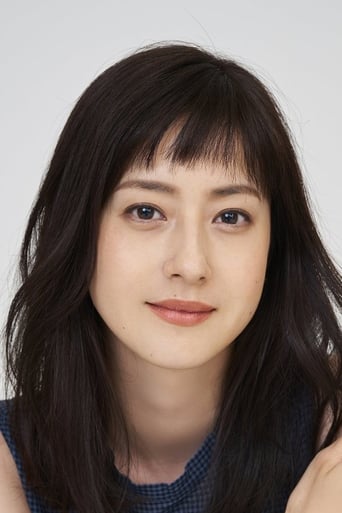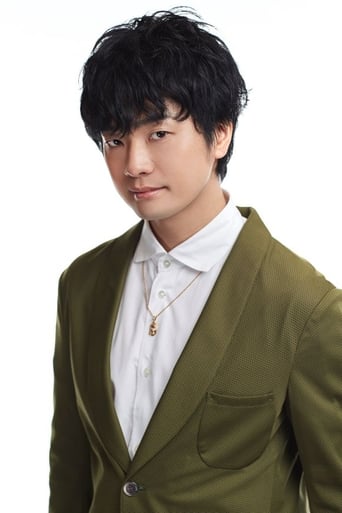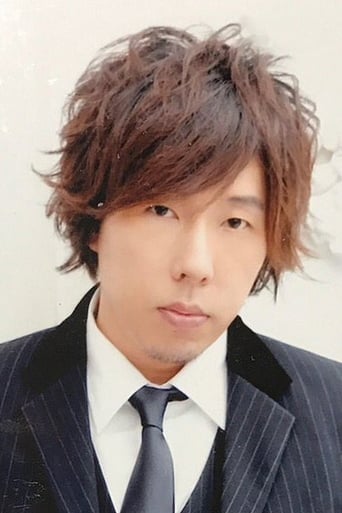Derek Childs (totalovrdose)
Hinata (Shunsuke Daito), after harboring strong feelings for his former colleague Yoriko (Wakana Matusmoto) for as long as he can remember, and after managing to uncover the courage, asks her out on a date. Two fish, purchased by the leads at the beginning of the feature, metaphorically represent the relationship, further demonstrating its directionality, alongside the character's feelings. Yoriko's affirmative response is however followed by a confession: she's a fujoshi otaku. Hinata, ignorant of such a culture, immediately acknowledges this will not be an issue, and through him, audiences who are uncertain of otaku culture, are able to gain a broader, if not slightly exaggerated view, as he experiences Yoriko's world.For the uninitiated, fujoshi are women with an avid appreciation for BL (boy's love) Manga, which, as the title suggests, exposes its readership to homo-erotic relationships between men. With this in mind, despite the film's sweet and bubbly demeanor, the feature contains a few sexual references, that, although not explicit, are certainly not for the ears of children either.Hinata is portrayed as a very sweet individual, and often appears similar to an underdog in the strange situation he finds himself thrust into. Yoriko on the other hand, although without a doubt eccentric, exhibits equally adorable behavior, and despite her fear that those around her with alternate interests may perceive her as a 'freak', she appears genuinely passionate about her culture, her character developed both positively and emotionally, the anxiety, spurred on by her fear of acceptance, being well portrayed by Ms. Matsumoto. The occasional animations and sound effects reflect those found in Manga and Anime, and further represent Yoriko's appreciation for fujoshi culture, while adjunctively demonstrating how she perceives the world.Although the film impressively reveals an interpretation of otaku culture, more detail could have perhaps been added to the professional background of the characters. Despite Yoriko's occupation having a rather large role within the plot, it remains largely unexplored what this job entails, while at the same time, the friends of the lead characters could have additionally been provided further depth.Moving on, sound plays an important role over the course of the feature, the well placed songs adding another layer of emotion to the film that reveals a particular character's inner thoughts, while the piano theme that accompanies several scenes is produced to an equally effective standard. At one point during the film, the lack of sound during a scene heightens the impact on the audience, while the tension, accentuated by the acting, in the way the characters begin to speak slower during particularly impacting moments, leaves the audience hanging on every word. The communicative practices in the film moreover are not limited to dialogue, the incorporation of bodily movement and facial expression, efficaciously accentuating conversations.At the same time however, the environments, although occasionally reflective of otaku and Japanese culture alike, sometimes it appeared that more could have been encapsulated to flesh these locations out. We barely glimpse Yoriko's residence, the film depicting the impact her way of life has on Hinata's home, while additionally, only three locations that Yoriko visits assist in establishing where those with similar tastes to hers may mingle.Despite its often humorous appearance, the film contains an equal number of serious moments that convey satisfactory depth and emotion, that is especially driven by not only the plot, but the capacity of the actors, all of which leads to a very worth while conclusion. The dialogue is also reminiscent of this, and though sometimes over-exaggerated, there is also an undefinable, witty charm that is well achieved. The film's opening, its blurb, alongside the marketing applied to the feature, make it appear as though there will be great hardship as Hinata attempts to come to terms with Yoriko's obsessions. Ironically, due to Hinata's open mindedness, and his unwavering affection, it often seems to be life itself that spells the largest complications of all.At times it can be difficult to annotate the accuracy of Yoriko's portrayal, for 'otaku' is a generalized stereotype, and the film's interpretation obviously does not apply to every individual associated with this culture. I myself, due to my adoration of Anime and Manga, have previously been called an otaku (and my slightly massive crush on Haruna Luna probably accentuates this), however, not everything the film portrayed accurately describes me, and the same could be said for others. This addendum aside, the film's sweet and charming atmosphere makes for a very light-hearted, humorous romance, and though How to Date an Otaku Girl is neither a guide to dating a geeky beauty, or a film that will appeal to everyone, it is certainly worth a look for those fascinated with the culture, or who are interested in seeing a very different romance.
gibgezr
Fujoshi Kanojo is a delightful light-hearted romantic comedy with a somewhat unique plot: a very normal young man attending a Japanese university starts dating a slightly older woman who quickly confesses to having a strange and obsessive hobby; she is a fujoshi, or in other words a fan of guy-on-guy homo-erotic comics/cartoons/novels/games etc.I think the reason some people are put off by this movie is that it changes gears quite abruptly. The first half of the story is all about the boyfriend coming to grips with her (to him) bizarre hobby and just how deeply immersed she and her friends are in it, with lots of scenes where he stares on in a mixture of googly-eyed amazement, abject horror and embarrassment at the antics of his girlfriend. It is played for laughs, with everything being depicted in a totally over-the-top fashion. Just as he starts to adapt to her lifestyle the movie shifts it's focus in a 90 degree turn and becomes all about the drama; she is offered a dream job in England, and must decide whether to stay with him or go. This last half of the plot is a very typical romantic drama with no comedic overtones, and because of the difference between the halves of the story neither folks who want all comedy nor folks who want all romance will be satisfied. The acting is mostly exaggerated at first, then becomes subdued for the drama, so many people will be unhappy with one part of the performances or the other. The use of graphic FX such as floating hearts and ribbons is standard for Asian rom-coms, but might throw off viewers unfamiliar with such fare.So, after all of that, why do I like this movie so much? It's because I am quite willing to take in both parts of this charming film, and I found the drama of the last half of the story a perfect(if somewhat standard) method of bringing closure to the "romance". I prefer my romantic comedies to start off silly and end seriously. Perhaps it's also because this is an Asian film and you really aren't sure how it will end, which means that the drama is actual drama (something that, alas, would be lost in a Hollywood remake). And, in the end, I just love the subject; a normal boy and strange otaku girl trying to have a relationship, and I think the treatment given that by this movie is appropriate for a rom-com. If you or the one you like have at least a passing interest in otaku culture I would recommend this as a good date movie.




